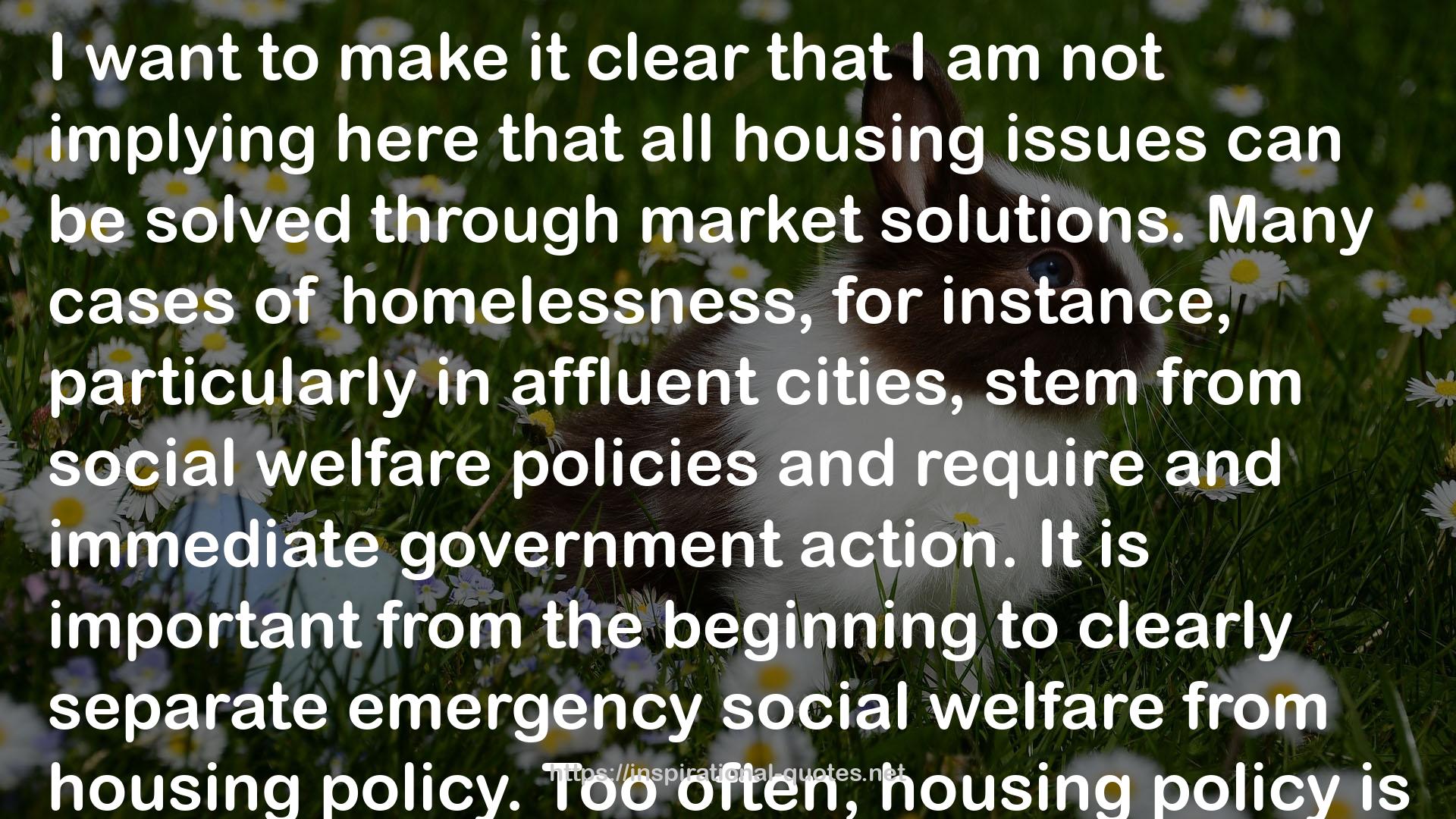" I want to make it clear that I am not implying here that all housing issues can be solved through market solutions. Many cases of homelessness, for instance, particularly in affluent cities, stem from social welfare policies and require and immediate government action. It is important from the beginning to clearly separate emergency social welfare from housing policy. Too often, housing policy is conceived as an extension of social welfare applied to the middle class.
In every large city, a small number of households - some may be one-person households - are unable to pay for their housing. They end up in the streets. These households may be permanently or temporarily disabled - physically or mentally - or may have experienced bad luck that results in long unemployment periods. It is certainly the duty of the government to provide a shelter for them as an emergency service. Once in an emergency shelter, social workers can identify those who are likely to be permanently unable to earn an income and then direct them toward a social housing shelter, where specialized staff will follow up on their case. Other homeless households may need only temporary help to find a job and a house they can afford before they rejoin the city's active population. The provision of homeless shelters is not part of housing policy, as it has little to do with supply and demand. "
― , Order Without Design: How Markets Shape Cities
